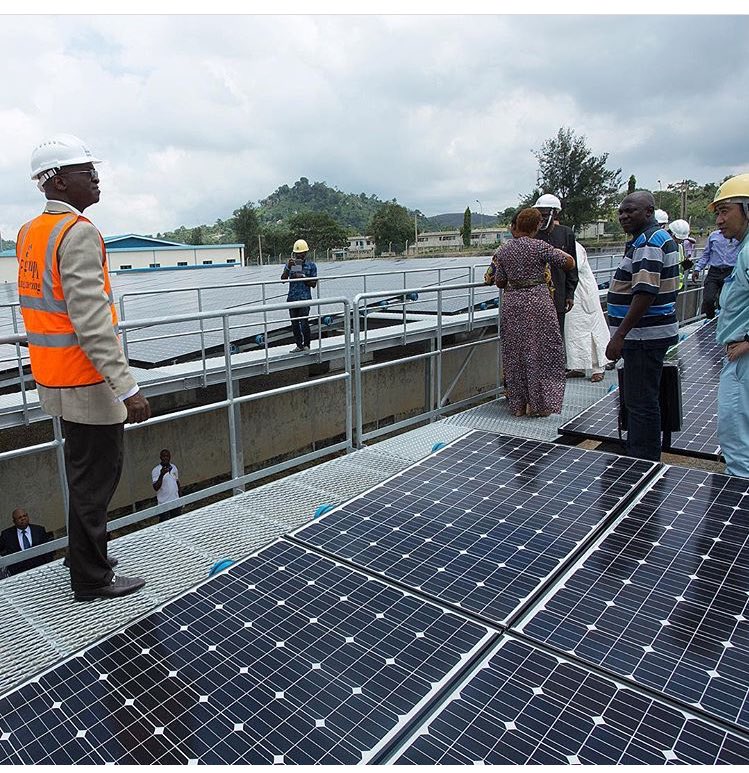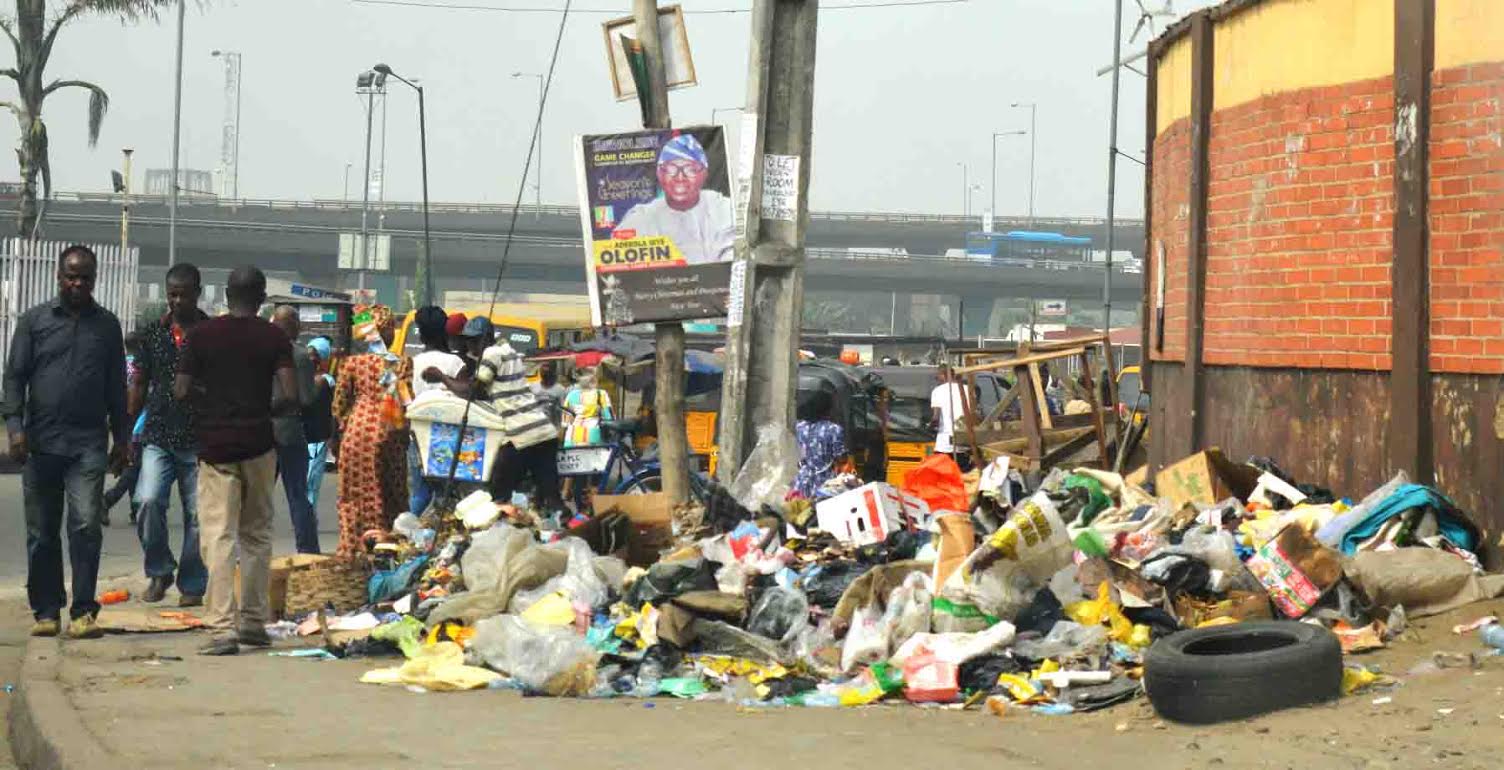By Chiemezie Okeke-Ojiudu
One of the great challenges haunting the present administration and indeed all past administrations is and has always been the subject of Nigeria’s power deficiency. In Nigeria, power is erratic, unstable and outages are more than frequent. With an installation capacity of over 7,000MW (or 12,000MW depending on who you ask), Nigeria barely manages to generate, on average, a dismal 3,800MW of electricity to meet the needs of its growing population. Over the years, several issues have been cited as major causes of Nigeria’s paltry power generation capacity and output, including pipeline vandalism, corruption, lack of adequate infrastructure, mismanagement and incompetence.
Just weeks ago, Nigeria’s power generation output dropped from around 3,959mw to 2,662mw. The sudden drop was attributed to low water levels at the hydro power stations and lack of gas due to pipeline attacks. And with a population of over 180 million people, Nigeria is only able to connect 40% of its citizens to the power grid. Lack of adequate electricity affects all strata of the economy, costing Nigeria billions per annum, while crippling the industrial, agricultural, & service sectors. This along with lack of adequate security, water and transportation is costing Nigerians an arm and a leg with devastating consequences for the road ahead.
Why have we as a people not solved this problem? Are we created differently from our western or far eastern counterparts? Surely all men are created equal, and if so, those saddled with the responsibility of solving these issues over the years have no excuse. Our natural resources are abundant, technology is obtainable, and adequate man power is available. Why are we still in this quagmire? By comparison, South Africa has a generation capacity of 52,811MW; Egypt 30,000MW; Canada 130,000MW and the United States, 1.17 million MW. Despite their output, these countries are determined and projected to increase their generation capacity with set targets and innovative ideas to meet rising energy demands yet to come.
Along with the electricity conundrum, Nigeria also faces a serious waste problem. Waste is a harbinger of various environmental impacts such as air, water, soil and pollution. Along with numerous risks to life and health, the desecration and decay of local communities and cities ruins the aesthetic quality and natural beauty of each state and, consequently, our country. Our answer over the years has been dumping our waste in open heaps and landfills, attracting vermin, disease and infection. Despite our pitfalls and mishaps, there is a solution to solving such foundational problems to the framework of our great nation. The answer lies in an effective and efficient waste-to-energy program. By enacting a sufficient waste management initiative for Nigeria, we can create renewable energy that will help fuel economic development while adding value back to our natural ecosystem and biosphere. Investing in waste to energy conversion will not only help reduce our waste management issues, it will also help alleviate the electricity problem by providing an alternative/reliable source of energy.
Advertisement
With evidential benefits abound, waste to energy conversion policies in Nigeria should be pursued aggressively. The advantages for a country struggling with excessive waste and rampant power outages are enormous. Although funding a huge project such as a waste to energy incineration plant can be taxing for state governments, the federal government can render assistance by commissioning large scale projects; that along with private sector participation can help see such programs through to fruition.
Currently, the two major power sources being used in Nigeria today are natural gas (70%) & hydro power (30%). With hydro power, disturbances and disruptions are usually blamed on low water levels, while thermal power (natural gas) mishaps remain the result of pipeline vandalism. Converting waste to energy on the other hand has none of the above stated weaknesses, and doubles as a waste disposal agent. Making sure Nigeria’s waste is put to good use, thus cleaning and lighting up the nation concurrently.
In Sweden, less than 1% trash ends up in landfills. This is due in part to the 32 waste-to-energy plants that have been setup across the country. These plants incinerate over two million tons of trash annually; almost 50% of the waste produced by the country (the other 50% is recycled). Waste-to-energy plants in Sweden provide close to a million homes with heating and electricity, and thus, are responsible for reducing the amount of trash that ends up in landfills, as well as helping to reduce Sweden’s reliance on fossil fuels. The Waste-to-energy project in Sweden is made more effective by the government’s insistence on the segregation of waste in both households and commercial institutions prior to incineration. Waste is a relatively cheap fuel and Sweden has, over time, developed a large capacity and skill in efficient and profitable waste treatment and management; so much so that Sweden imports 700,000 tonnes of waste from other countries yearly. http://www.iflscience.com/environment/less-1-swedens-trash-ends-landfills)
Advertisement
https://sweden.se/nature/the-swedish-recycling-revolution/.
Besides incineration (combustion), other viable waste-to energy/bioenergy methods include: anaerobic digestion (biogas) and gasification (syngas). Both methods can be used on a much smaller scale to power local communities, industries and hamlets around the country. The private sector should be encouraged in areas such as this. The more people/organisations involved in the generation of power, the closer we are to powering the whole nation.
According to the International Energy Agency (IEA), bioenergy is the single largest renewable energy source today, providing 10% of the world with a primary energy supply. It also plays a crucial role in many developing countries where it provides energy for cooking. Apart from bioenergy, solar, wind, hydro, geothermal, and tidal energy are all forms of viable renewable energy sources. Diversification is important and Nigeria’s dependency on thermal energy is costing us dearly.
There is no set pattern or formula for energy expansion. We can and should add to our current energy mix and capacity with great devotion. The United States for instance relies on; natural gas (33%), coal (33%), nuclear (20%), and renewables (including bioenergy, hydro & solar) (13%), as energy sources respectively. The key is focusing on certain areas and working vigorously to achieve set goals. Sweden (bioenergy), Kenya (geothermal), Morocco & Rwanda (solar), and Denmark (wind) are all major players in renewable energy. We must think ahead as a nation by investing in the future, embracing change and employing innovation into our resource bank to construct a brighter tomorrow.
Advertisement
For too long, Nigerians have suffered the consequences of inadequate electricity, starkly diminishing efficiency in the workplace and at home. We must light the way to better understanding and planning for courses of action that meet the needs of our country. It is often said that only light can push out darkness, and in the same vein, only action can cure grief. Through waste-to-energy investment we will light up the streets, roads, homes and minds of our nation, transforming our economy, and in time, our position on the global stage.
Views expressed by contributors are strictly personal and not of TheCable.
Add a comment






